P&W-funded Kamilah Aisha Moon currently lives in Brooklyn, NY, and is the author of She Has a Name (Four Way Books). A recipient of fellowships to the Prague Summer Writing Institute, the Fine Arts Work Center, Cave Canem, and the Vermont Studio Center, Moon's work has been featured in several journals and anthologies, including Harvard Review, jubilat, Sou’wester, Oxford American, Lumina, Callaloo, Villanelles, Gathering Ground, and The Ringing Ear. She has taught English and Creative Writing at Medgar Evers College-CUNY, Drew University, and Adelphi University. Moon holds an MFA in Creative Writing from Sarah Lawrence College.
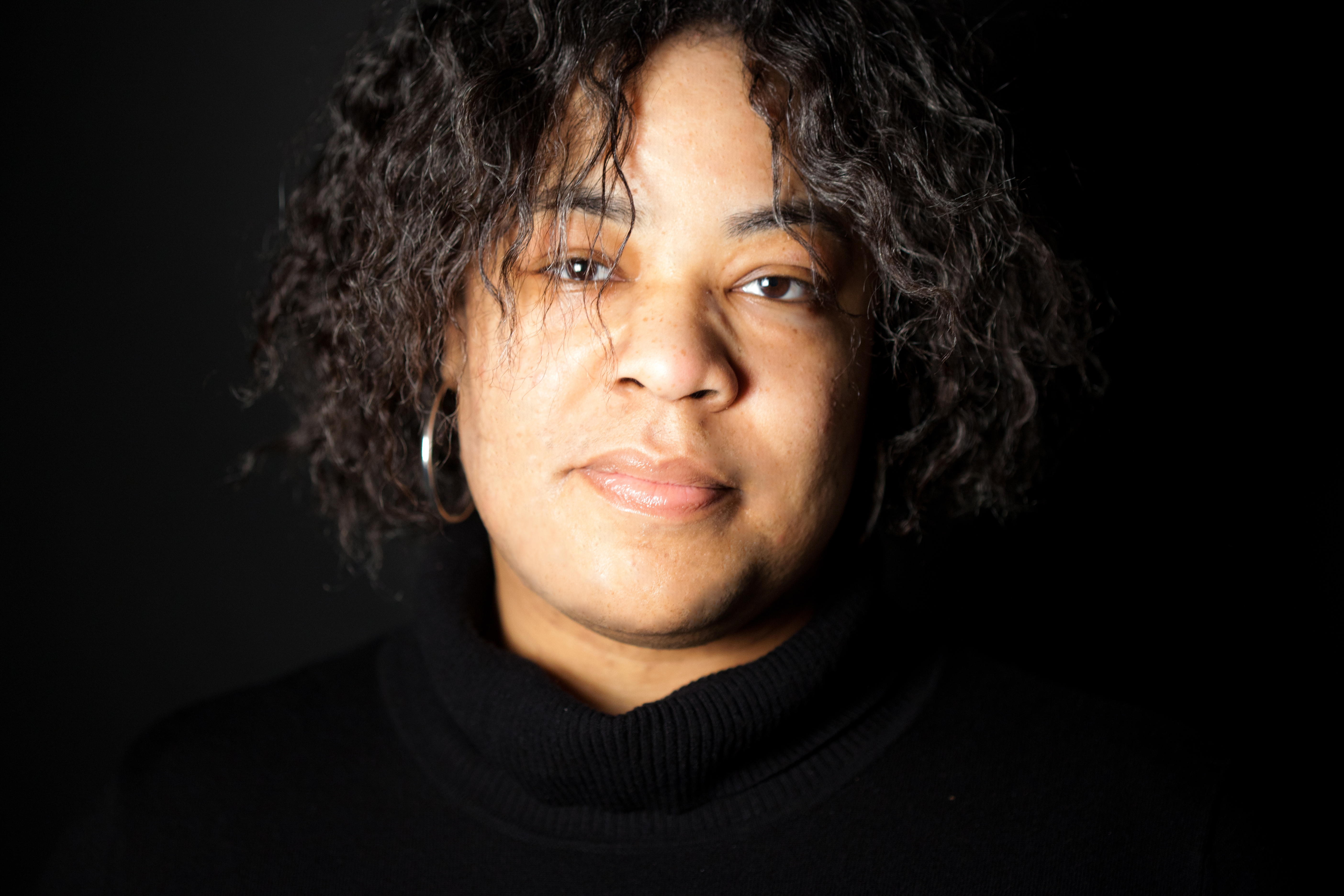 Poets & Writers funds a wonderful workshop at a senior citizen recreational center in Manhattan called the Lincoln Square Neighborhood Center. A good friend of mine, Samantha Thornhill, regularly facilitates the workshop. I recently had the pleasure of being a guest instructor for one session, and it was an afternoon that I will continue to treasure for many reasons. What a treat to sit at the table with these women and experience their hard-won insights and revelations, their beauty. To witness their respect for what reading and writing poetry has always afforded them—how it delights, soothes and edifies; the sweet and profound awe it inspires.
Poets & Writers funds a wonderful workshop at a senior citizen recreational center in Manhattan called the Lincoln Square Neighborhood Center. A good friend of mine, Samantha Thornhill, regularly facilitates the workshop. I recently had the pleasure of being a guest instructor for one session, and it was an afternoon that I will continue to treasure for many reasons. What a treat to sit at the table with these women and experience their hard-won insights and revelations, their beauty. To witness their respect for what reading and writing poetry has always afforded them—how it delights, soothes and edifies; the sweet and profound awe it inspires.
Poetry is time travel. The opening free-write exercise “Give me back...” asked the women to reflect on the past. They transformed as they shared fifteen minutes later the many reveries they brought back to life, eyes sparkling as they showed through metaphor and great sensory detail what they once had and who they used to be "back in the day," and what their once young, supple bodies could accomplish (one of the ladies being a dancer). "Give me back my long, luxurious curls...nights with my husband before the kids came along. Just give me back my husband, gone now." They recalled what mattered and still does, expressed gratitude for what rose in the wake of loss along the way. There was sensuality, sass, and a healthy irreverence from a woman in her eighties as she read mantras for living that got her this far in life, until her respiratory problems took over and shortened her time in our session.
We discussed persona poems, compared lyric to narrative poetry, and explored space as breath in a poem. We studied form as the setting and craft as tools to compose these word-diamonds we hew from our personal experiences. The afternoon sun poured into the windows; we all glowed. It reminded me of the line in a Rumi poem, “Sunlight fell upon the wall / the wall received a borrowed splendor.” The sheen of discovery, recognition, acknowledgment, and transcendence filled the room. I always want to remember and keep sacred that this is a human business. As poet Jon Sands often says, we are “emotional historians.”
Two years ago, I taught a Poets & Writers-sponsored workshop filled with sixth grade honor students at the Young Women's Leadership Academy in Queens. For ten weeks, we focused on elements of craft and discussed the work of published poets, unpacking what each poem had to offer us. We created an anthology. These girls were gifted and bright beyond their young years, their poems suffused simultaneously with innocence and wisdom. Kristalyn proclaimed, “My name is a dragon / just like me! It has power / and can let loose.” In an ode to her fingers, Tearah wrote “You clasp my knuckles in prayer...you hold my pen, my writing sword!”
The young women made me hopeful for their individual futures and the future of the world. The more mature ladies filled me with the strength to face my own golden years with grace, and to handle the inevitable curves and challenges ahead with the same aplomb they exhibited. I was struck by how, in both workshops, the students' faces shone with the same wonder, and conveyed a careful stewardship and thoughtfulness when giving such astute feedback and suggestions. I was honored to encourage the young women to experience poetry for the first time, and equally honored to witness many of the older women use poetry to relive some major events that shaped their lives.
Among the many important moments, both of these workshops affirmed that poetry contains a brilliance that we can access and own for a lifetime. Through poetry, we can transform ourselves and change others as we sit around each other's poems like campfires for warmth and sustenance. For as long as we can hold our “writing swords,” we possess the power to draw breath, to speak, and to listen.
Photo: Kamilah Aisha Moon. Photo Credit: Rachel Eliza Griffiths.
Support for Readings/Workshops in New York City is provided, in part, by public funds from the New York State Council on the Arts, and the New York City Department of Cultural Affairs, with additional support from the Louis & Anne Abrons Foundation, the Axe-Houghton Foundation, the A.K. Charitable Trust, and the Friends of Poets & Writers.
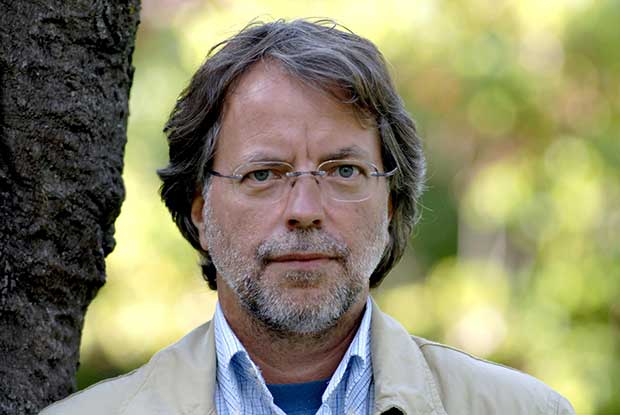 Couto, 58, is the first Mozambican author to be nominated for and to win the prize. His books include the novels Sleepwalking Land and The Last Flight of the Flamingo and a short story collection, Voices Made Night. His works have been published in more than twenty languages.
Couto, 58, is the first Mozambican author to be nominated for and to win the prize. His books include the novels Sleepwalking Land and The Last Flight of the Flamingo and a short story collection, Voices Made Night. His works have been published in more than twenty languages.




 Poets & Writers funds a wonderful workshop at a senior citizen recreational center in Manhattan called the Lincoln Square Neighborhood Center. A good friend of mine, Samantha Thornhill, regularly facilitates the workshop. I recently had the pleasure of being a guest instructor for one session, and it was an afternoon that I will continue to treasure for many reasons. What a treat to sit at the table with these women and experience their hard-won insights and revelations, their beauty. To witness their respect for what reading and writing poetry has always afforded them—how it delights, soothes and edifies; the sweet and profound awe it inspires.
Poets & Writers funds a wonderful workshop at a senior citizen recreational center in Manhattan called the Lincoln Square Neighborhood Center. A good friend of mine, Samantha Thornhill, regularly facilitates the workshop. I recently had the pleasure of being a guest instructor for one session, and it was an afternoon that I will continue to treasure for many reasons. What a treat to sit at the table with these women and experience their hard-won insights and revelations, their beauty. To witness their respect for what reading and writing poetry has always afforded them—how it delights, soothes and edifies; the sweet and profound awe it inspires.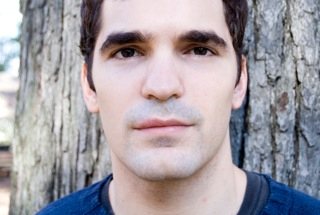

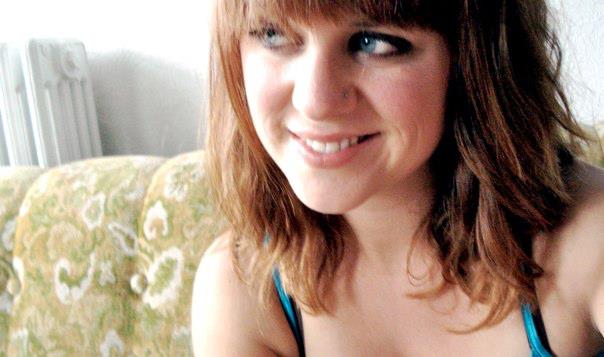
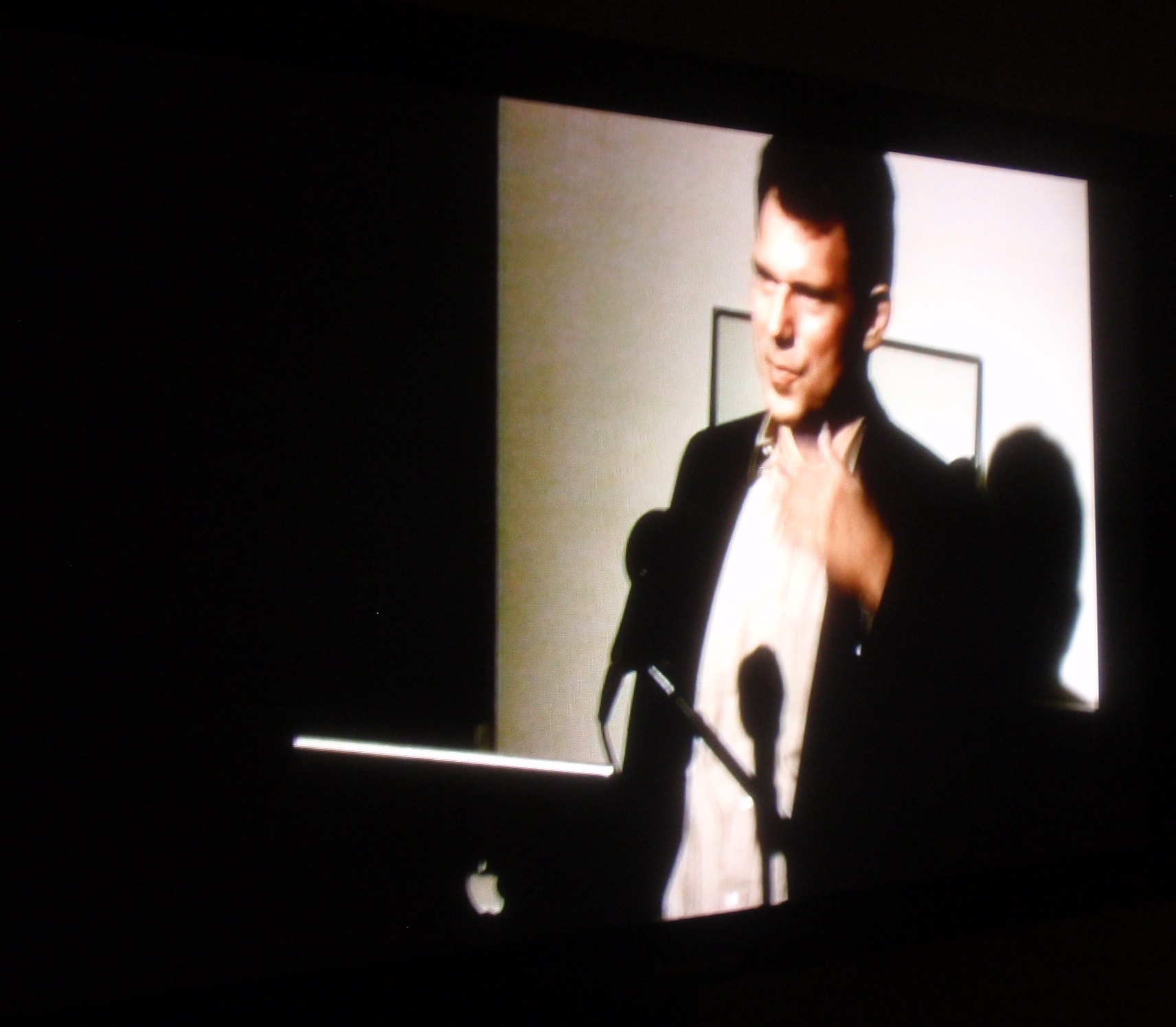 Author and Bookforum editor Albert Mobilio organizes apexart’s
Author and Bookforum editor Albert Mobilio organizes apexart’s 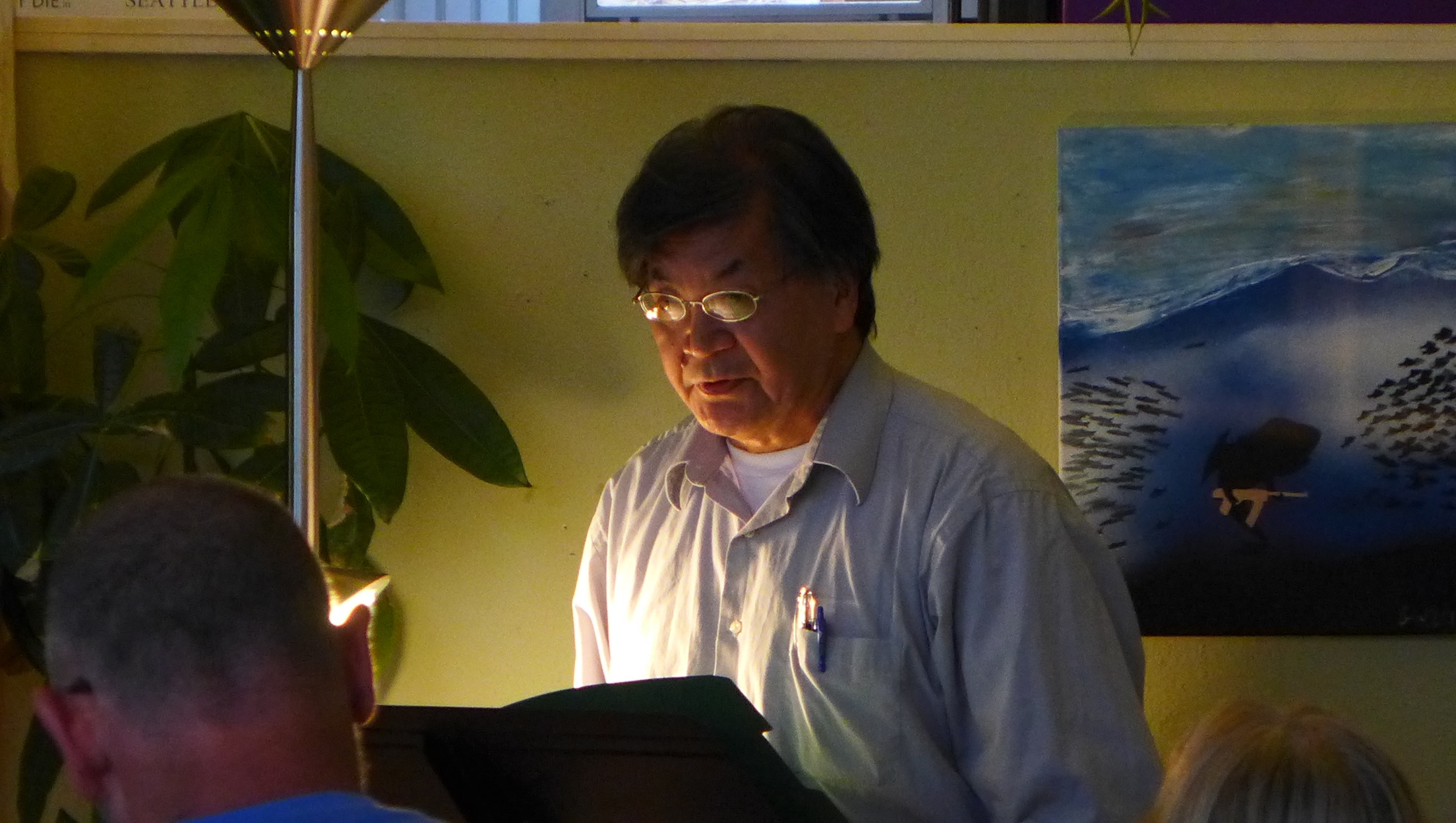 My Uncle Sum was my second maternal uncle and my mentor, a man of three teachings: Confucianism, Taoism, and Buddhism. He told his wife that the proper place to wash his clothes was at the river by the ancestral shrine, the part of the chicken to give their nephew was the thigh, and the way to regulate the household was to avoid unnecessary noise.
My Uncle Sum was my second maternal uncle and my mentor, a man of three teachings: Confucianism, Taoism, and Buddhism. He told his wife that the proper place to wash his clothes was at the river by the ancestral shrine, the part of the chicken to give their nephew was the thigh, and the way to regulate the household was to avoid unnecessary noise. 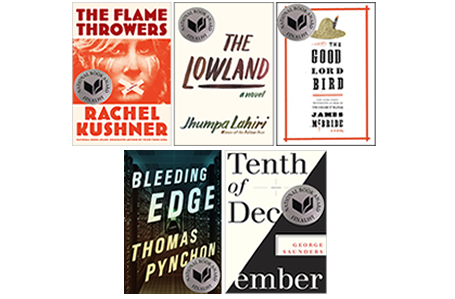 The finalists in poetry are Frank Bidart, Metaphysical Dog (Farrar, Straus and Giroux); Lucie Brock-Broido, Stay, Illusion (Knopf); Adrian Matejka, The Big Smoke (Penguin); Matt Rasmussen, Black Aperture (Louisiana State University Press); and Mary Szybist, Incarnadine (Graywolf Press).
The finalists in poetry are Frank Bidart, Metaphysical Dog (Farrar, Straus and Giroux); Lucie Brock-Broido, Stay, Illusion (Knopf); Adrian Matejka, The Big Smoke (Penguin); Matt Rasmussen, Black Aperture (Louisiana State University Press); and Mary Szybist, Incarnadine (Graywolf Press).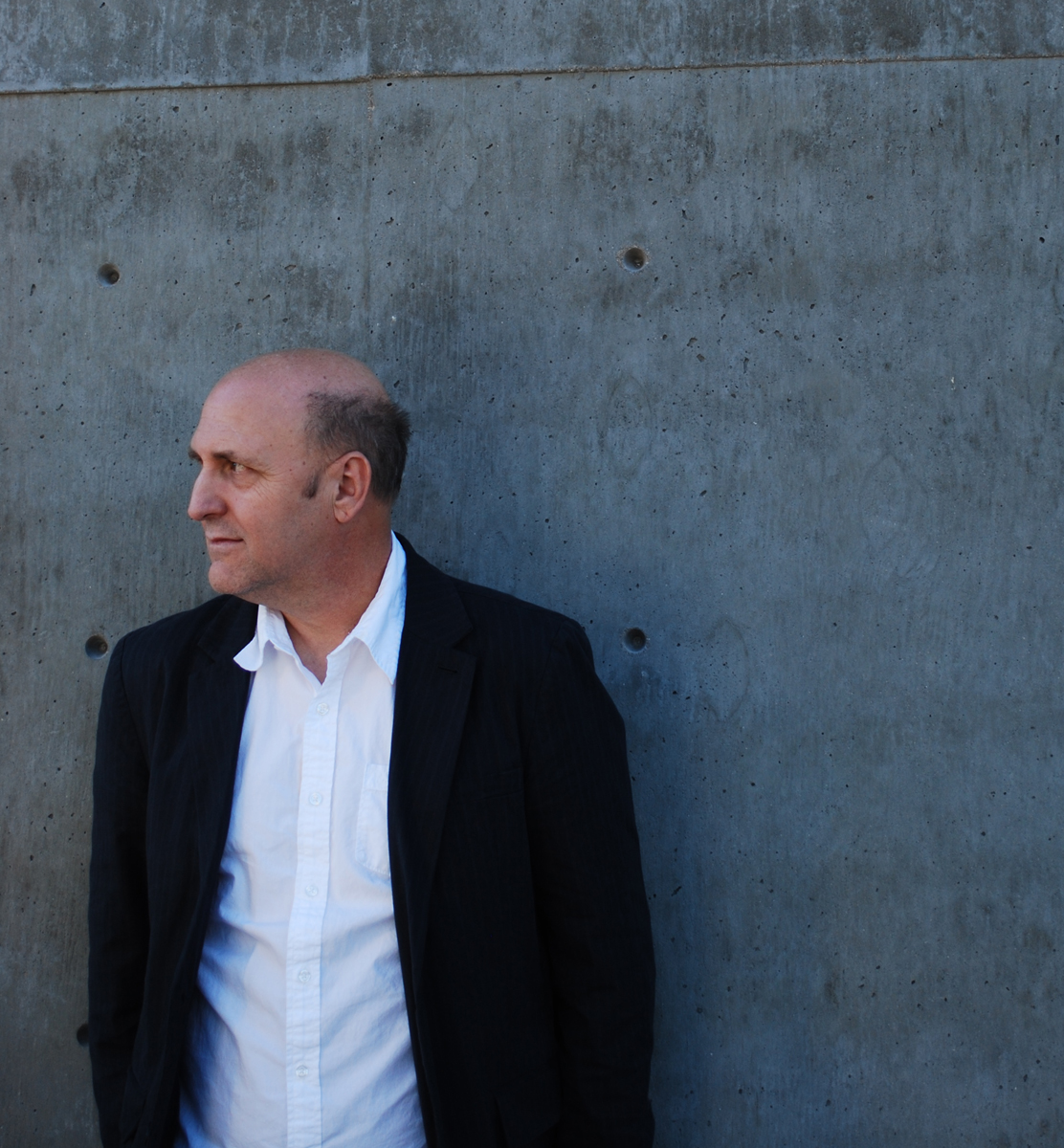
 The prize was announced at a ceremony in London’s Guildhall. Chair of judges Robert Macfarlane called the book a “dazzling work, luminous, vast” with an “extraordinarily gripping” narrative. “The Luminaries is a novel you pan, as if for gold, and the returns are huge,” Macfarlane said. “Maturity is evident in every sentence, in the rhythms and balances. It is a novel of astonishing control.”
The prize was announced at a ceremony in London’s Guildhall. Chair of judges Robert Macfarlane called the book a “dazzling work, luminous, vast” with an “extraordinarily gripping” narrative. “The Luminaries is a novel you pan, as if for gold, and the returns are huge,” Macfarlane said. “Maturity is evident in every sentence, in the rhythms and balances. It is a novel of astonishing control.” 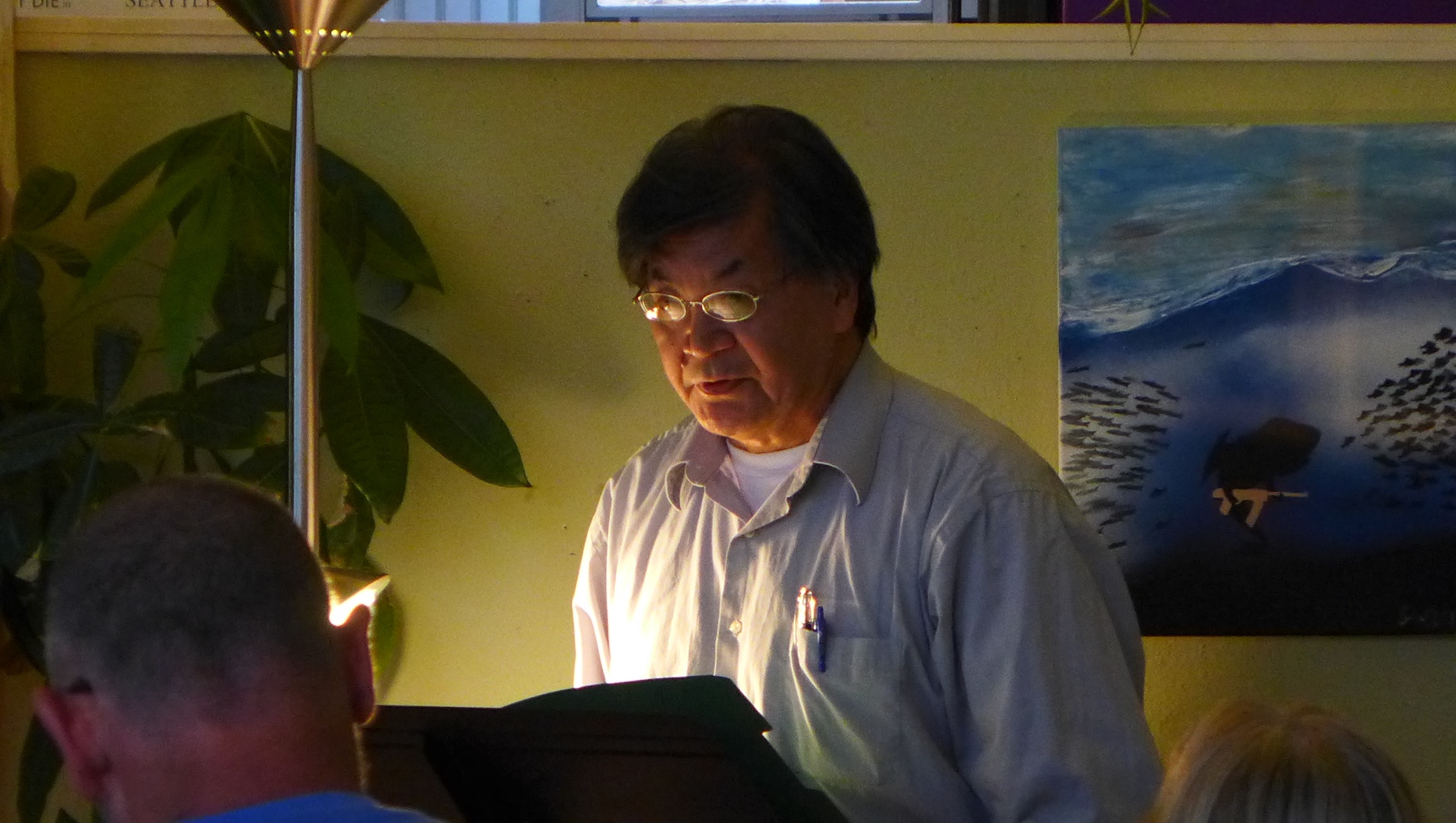 My most recent reading in Seattle—a production of the Chrysanthemum Literary Society with support from Poets & Writers, featuring several
My most recent reading in Seattle—a production of the Chrysanthemum Literary Society with support from Poets & Writers, featuring several 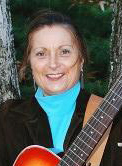 Of course, I recall my first attempts twenty or so years ago trying to explain to various academics my ideas. Neuroscience and brain chemistry fields really didn’t exist then, so usually my ideas were received with a raised eyebrow, leery glances, and silence. My first writing professor, Leonard Gilley, always said that perseverance was a writer’s mainstay. I continued to seek and cultivate my voice as a writer and in so doing I was met with profound adversity, and opportunities.
Of course, I recall my first attempts twenty or so years ago trying to explain to various academics my ideas. Neuroscience and brain chemistry fields really didn’t exist then, so usually my ideas were received with a raised eyebrow, leery glances, and silence. My first writing professor, Leonard Gilley, always said that perseverance was a writer’s mainstay. I continued to seek and cultivate my voice as a writer and in so doing I was met with profound adversity, and opportunities.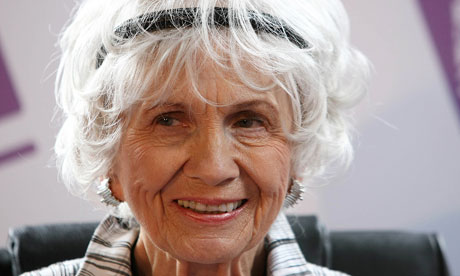 Peter Englund, the permanent secretary of the Swedish Academy, made the announcement today in Stockholm, calling Munro a "master of the contemporary short story." Munro, who lives in Clinton, Ontario, and whose work often deals with small-town life and the complicated relationships between women and men,
Peter Englund, the permanent secretary of the Swedish Academy, made the announcement today in Stockholm, calling Munro a "master of the contemporary short story." Munro, who lives in Clinton, Ontario, and whose work often deals with small-town life and the complicated relationships between women and men,